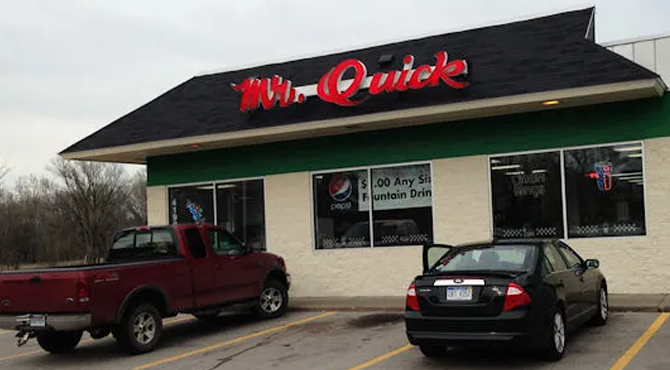Another beloved restaurant has closed its doors along the Lake Michigan shoreline. After years of serving the Muskegon community, Mr. Quick Restaurant at 4190 Old Grand Haven Road announced its permanent closure on September 9 via a Facebook post, marking the end of an era for many loyal patrons in the area.
Mr. Quick, known for its affordable comfort food, friendly service, and its deep-rooted presence in the community, had been a go-to spot for locals and travelers alike. The restaurant’s sudden closure has left customers saddened, many of whom have frequented the establishment for years, viewing it as not just a place to grab a meal, but a fixture of the Muskegon dining scene.
Impact on Customers and the Community
The closure of Mr. Quick is a significant blow to regular patrons, some of whom visited daily or weekly. For many Muskegon residents, the restaurant was more than just a dining spot—it was a community hub, a place to gather with family and friends, and a space where many grew accustomed to seeing familiar faces, both from the staff and other customers. Its affordability, casual atmosphere, and consistency made it particularly popular among families and retirees on fixed incomes.
“I’ve been coming here since I was a kid,” said longtime customer John Harris. “This place was like a second home. It’s where I could come in for breakfast or lunch, and see people I’ve known my whole life.”
Beyond the emotional loss, the closure also poses an economic impact on regular customers who now must find new dining options. For some, it may mean longer drives to other parts of Muskegon, or opting for pricier restaurants that don’t quite offer the same familiar vibe that Mr. Quick did. The closure also means the loss of jobs for staff members who had been part of the restaurant for years.
A Trend Along the Lakeshore?
Mr. Quick’s closing is not an isolated incident. The Lake Michigan shoreline has seen a spate of restaurant closures in recent years, a trend partly fueled by rising operational costs, staffing challenges, and shifts in consumer behavior post-pandemic. Local establishments that have been staples for decades are struggling to navigate these challenges, often unable to compete with larger chains or adapt to changing economic conditions.
In their Facebook post, Mr. Quick did not elaborate on the specific reasons behind the closure, but many speculate that a combination of financial pressures and changing customer dynamics may have played a role. While Muskegon is growing in some areas, smaller, family-owned businesses often face the toughest challenges.
Local Reaction and What’s Next
The news of Mr. Quick’s closure quickly spread through social media, with many expressing their disappointment and nostalgia for the establishment.
“We are heartbroken. It was one of our favorite places,” one customer commented. Another added, “This is the end of an era for Muskegon. Mr. Quick wasn’t just a restaurant—it was part of our community’s identity.”
As Muskegon continues to evolve, the closure of longstanding businesses like Mr. Quick raises broader questions about the future of small, local dining establishments in the area. While new restaurants and businesses continue to open, the loss of iconic spots like this one creates a gap in the cultural and social fabric of the town.
For now, former patrons are left reminiscing on the good times, memorable meals, and the relationships built over years of dining at Mr. Quick—a place that, for many, was far more than just a restaurant.
Future of the Space
There is currently no word on what will happen to the 4190 Old Grand Haven Road location. With the site now vacant, community members are curious about whether another restaurant will take its place or if the space will be repurposed for a different kind of business. However, any new establishment that moves in will have big shoes to fill, as the legacy of Mr. Quick will not be easily forgotten.
As the Muskegon community processes the closure of another local landmark, it remains to be seen how the loss of Mr. Quick will affect the local dining landscape and the tight-knit community it served for so many years.

